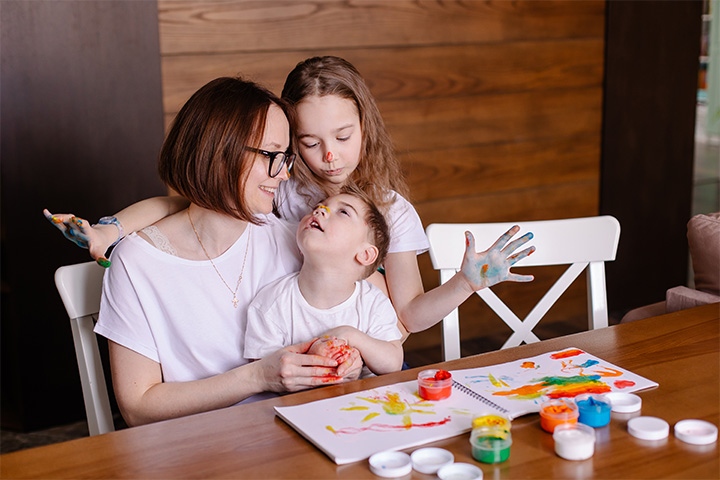
Image: Shutterstock
Parenting a child with special needs or disabilities can be hard. They require extra attention, a lot of care and support. But sometimes, parenting their siblings can be harder. Parents can be so focused on caring for their handicap kid that they forget that it’s just as important to be there for their siblings. A “glass child” is a popular term now used for a sibling of a child with a disability who often feels ignored and neglected. And unfortunately, it is the reality of most children with siblings who have special needs. The phrase signifies that they are not seen and that parents often look right through them because they are the more efficient and independent child. But that doesn’t mean that your kid doesn’t need you at all. After all, they are still a child in need of love, care and guidance. And it’s fair for them to want to be treated as a child and not their sibling’s additional caregiver. So, if you have a child with disabilities and a child without them, this is how you avoid raising a glass child. Read on to learn more!
1. Provide Your Child With Age-Appropriate Information
Image: Shutterstock
You need to make sure that your child understands why you have to spend extra time on their siblings. They may be able to tell right away that they have a disability, but you still need to include them in conversations and provide them with information that is both age appropriate and pertains to the situation. Make sure they know that the topic of the sibling’s disability is okay to discuss as long as it is respectful. By being honest with them you will help them understand why their sibling is being fed breakfast while they are expected to eat by themselves. Letting them be aware of the sibling’s disabilities will help them empathize with them instead of simply viewing them as a competitor for your affection and love.
2. Set Aside Quality Time For Them
Image: Shutterstock
Sometimes parents forget that they have to take into consideration the likes, needs and wants of all their kids when they have one with a disability. So the family skips out on doing activities and going places that the disabled child cannot, in order to be inclusive. But this can leave their siblings feeling hurt and neglected as they are always expected to compromise. This is why it’s so important to set some time apart to spend doing the things they really want to do. Go to the trampoline park with them, take them ice skating or simply talk about their favorite movies and books. Carving out time doesn’t just mean taking them out for a couple of hours a week. Make sure to include them in conversations and discussions. Spend time working on a puzzle, or watching a show together so that you can bond with them too. Spending even 15 minutes individually with each child can make a world of difference.
3. Create A Joint Journal
Creating a joint journal is an activity that both the parent and the child can partake in. It will help the parent get some insight into what their child is truly feeling and what they need. Sometimes, kids find it easier to write down their feelings than talk about them. So even writing down a simple message saying that you are thinking of them or asking them what you need can get you a pretty detailed response. It also helps the child know that their parents are thinking of them even if they don’t appear to be looking over at them often. It will show them that you care enough to make an effort with them. Journaling is an easy and effective way to communicate one’s feelings. So, use this tool to your advantage as much as you can. You don’t have to do it every day and not every entry has to be long. Sometimes it can even be a single word. As long as you and your child feel connected and like you are continuously in open conversation with each other.
4. Include Them In Future Plans
Image: Shutterstock
When it comes to having a child with disabilities, you need to be prepared for the worst at all times. And that means also preparing for their future care well ahead of time. This needs to also include the other kids as well. Your kids probably worry about taking care of their siblings in the future just as much as you do. And leaving them feeling uncertain and alone can make the future seem that much scarier and daunting. So talk to your kids about your disabled child’s strengths and abilities and where they will need extra help and care.
Caring for all your kids when you have a disabled child can seem like an impossible task, but it doesn’t have to be. With a few easy changes, every child in the family can feel loved and included without you wearing yourself out!
















